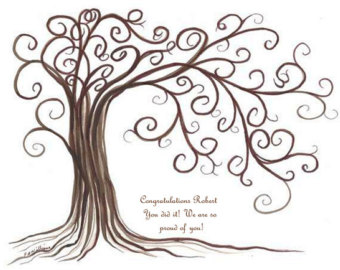In the end I did not use Philip Rice for my application. Instead I was advised to follow another branch of my family where more documentation was less complicated. It turned out to be a whole new family that I had always ignored for no good reason. And, I found a very interesting branch to research that contained two new Revolutionary patriots.
By the time I was finished with this project I had 6 new patriots in my family. I used a member of the Weaver branch to complete my application which is now at National Headquarters of the DAR waiting in line for approval.
As for researching the new ancestors, I will be looking for the actions of the Revolutionary War that affected their lives. The following list can also be applied to any of your ancestors. Keep in mind that for every action there is a reaction.
1. Loss. This can be death of soldiers or civilians. Also, loss of farm, home, business. In my ancestor's case, it was the loss of a ship. It can have a major effect on your ancestor's life.
2. Economic hardship. Another major effect of the Revolution that is closely related to loss in many ways, was loss of income. I found this in Philip Rice's life after the war. Lives changed due to loss of economic standing in the community. Starting over from scratch wasn't easy for many of our ancestors.
3. Women's lives changed. After the men in the family left home to fight for independence, many wives were left alone to provide for their families. A woman could choose to return to her parents' home or the home of a sibling. If this was not an option she would be on her own to take on new responsibilities and learn to provide for the family. This eventually came to be an asset in her new way of life on the new frontier.
4. Divided families. Not everyone supported the patriots and colonists had to adjust to family members who remained loyal to the crown. Unfortunately families separated which could complicate research with two locations showing up for the same family. In addition some Loyalists moved to Canada, our neighbor to the North and a place we never think to look!
5. Religious freedom. Many people came to America looking for religious freedom. Some colonies were established by clergy and there was always the shadow of the Church of England in others. After the war the Constitution and the Bill of Rights cemented religious freedom.
6. Western Expansion affected almost everyone's life. Some crossed the mountains into Ohio, Kentucky and beyond. Others stayed behind. This journey created its own actions that resulted in new reactions and changes in our ancestors lives.
7. A New Government created a new way of life for the colonists. An experiment with elected representatives who carried out the wishes of the voters. In other words, no taxation without representation! The first amendment guaranteed the freedom of press, speech, religion and the right to assemble and petition. A new beginning for your ancestors. And a source of information for genealogists - Tax Record
I think of this as an action/reaction method of researching ancestors. It never stops; one action leads to another. Think about your own life and the decisions you made at every fork in the road. What influenced your decisions? Now think about your ancestors' lives. Any similarities there?
* * * * *
I hope I have encouraged you to follow your ancestors back to the 1700s. It can be a fascinating journey.
